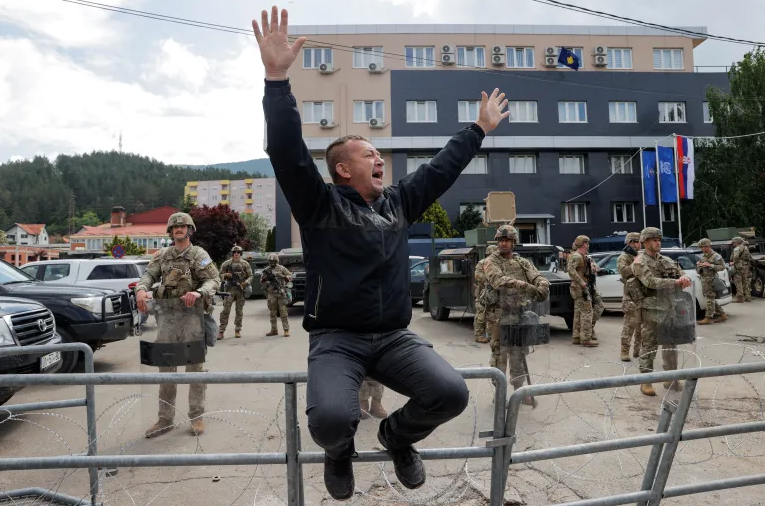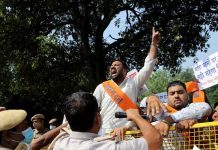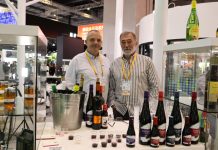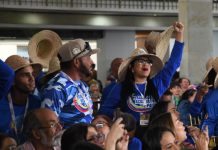DM Monitoring
NEW YORK: NATO peacekeeping soldiers have formed security cordons around four town halls in Kosovo to keep back Serbs protesting against ethnic Albanian mayors taking office in a Serb-majority area after elections they boycotted.
Clashes erupted on Monday in Zvecan, one of the towns in north Kosovo, where state police – staffed entirely by ethnic Albanians after all Serbs quit the force last year – sprayed pepper gas to repel a crowd of Serbs who tried to force their way into the municipality building, witnesses said.
Serb protesters threw tear gas and stun grenades at NATO soldiers and spray-painted NATO vehicles with the letter Z, a Russian sign used in the war in Ukraine, according to the Reuters news agency. In Leposavic, close to the border with Serbia, US peacekeeping troops in anti-riot gear placed barbed wire around the municipality building to protect it from hundreds of angry Serbs gathering nearby.
Later in the day, protesters pelted a nearby parked car belonging to the new mayor with eggs.
Serbian President Aleksandar Vucic, who is also the commander-in-chief of the Serbian Armed Forces, raised the army’s combat readiness to the highest level, Defence Minister Milos Vucevic told reporters.
“This implies that immediately before 2pm [12:00 GMT], the chief of the general staff of the the Serbian armed forces issued additional instructions for the deployment of the army’s units in specific, designated positions,” Vucevic said without elaborating. The NATO-led peacekeeping Kosovo Force, or KFOR, said in a statement that it “has increased its presence in four municipalities of northern Kosovo following the latest developments in the area”.
“In line with its mandate, KFOR is ready to take all necessary actions to ensure a safe environment in a neutral and impartial manner,” it said, adding that KFOR’s commander was in close contact with the security agencies of Kosovo and Serbia.
The peacekeepers also acted to protect the town halls in Zubin Potok and North Mitrovica from possible threats. Igor Simic, deputy head of the Serb List party, accused Kosovo Prime Minister Albin Kurti of fuelling tensions in the north.
“We are interested in peace,” Simic told reporters in Zvecan. “Albanians who live here are interested in peace, and only he [Kurti] wants to make chaos.”
Serbs, who form a majority in Kosovo’s north, have never accepted its 2008 declaration of independence from Serbia and still see Belgrade as their capital more than 20 years after the Kosovo Albanian uprising against repressive Serbian rule.
Ethnic Albanians make up more than 90 percent of the population in Kosovo as a whole, but northern Serbs have long demanded the implementation of a European Union-brokered 2013 deal for the creation of an association of autonomous municipalities in their area.
In April this year, Serbs refused to take part in local elections, and ethnic Albanian candidates won the mayoral races in four Serb-majority municipalities with a 3.5 percent turnout.
Serbs demand that the Kosovo government remove ethnic Albanian mayors from town halls and allow local administrations financed by Belgrade to return to their duties.






